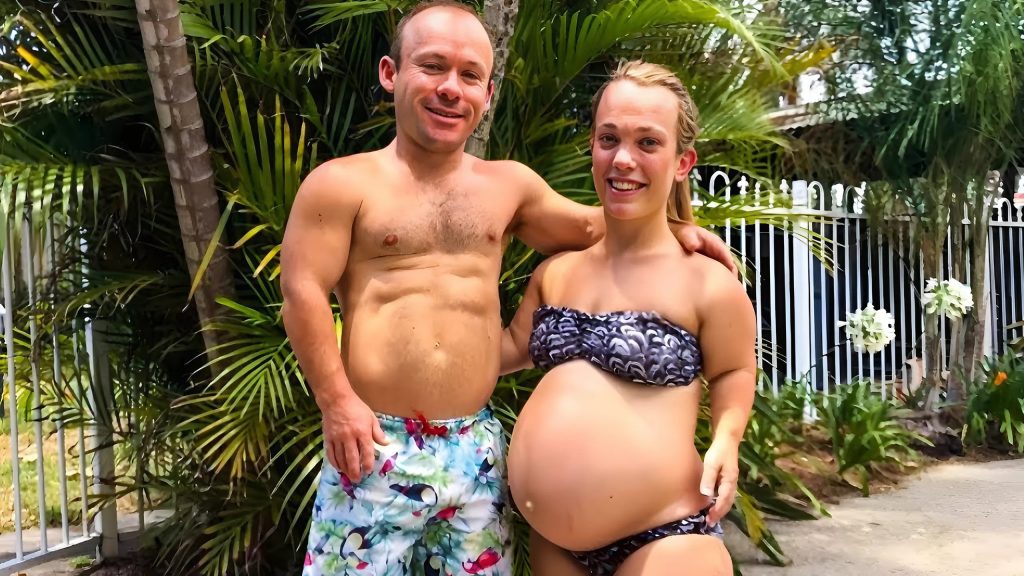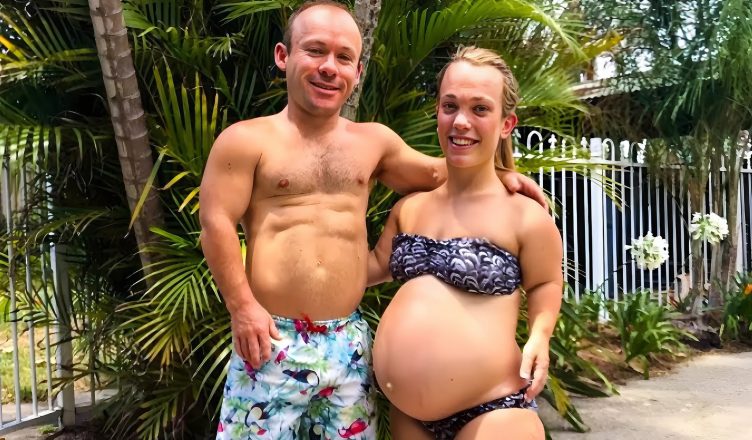It started as a story about love. But it became something much greater — a living testament to courage, defiance, and the unbreakable bond between two human souls who refused to surrender to fear.
Elena and Marco had met under unexpected circumstances. She was a biochemistry student in Vienna; he was an Italian engineer temporarily working on a renewable energy project. Their connection was instant, the kind of rare intimacy that seems to bend time. But beneath the romance was a silent ticking — one that neither of them could ignore for long.
Elena had been diagnosed with a rare autoimmune condition in her teenage years. According to every medical journal and every specialist she had seen, pregnancy was out of the question. Her body, already under siege by its own immune system, would not withstand the hormonal changes of pregnancy. The risk wasn’t just high — it was deadly.
Over the years, the doctors repeated the same sentence with unwavering finality:
“You must never carry a child. It could cost you your life.”
For a long time, Elena accepted it. She focused on her education, her career, and later, her relationship with Marco. They adopted a dog, bought a house near the foothills of the Alps, and created a version of happiness that did not involve children. Or so they thought.

Because dreams — real dreams — don’t always listen to reason.
On her 32nd birthday, Elena sat across from Marco at a candlelit table and whispered what she had been too afraid to say for years:
“I want to try.”
It wasn’t impulsive. She had been studying new experimental treatments, tracking the stories of women with similar conditions. There had been medical advances, albeit risky ones. But her desire was no longer a soft, abstract thought. It had become visceral.
Marco, after a long silence, took her hand.
“I won’t lose you,” he said.
“You won’t,” she replied.
They sought out every possible opinion, crossing borders to consult immunologists, high-risk obstetricians, and reproductive specialists. Most shook their heads. A few left the door open by a millimeter. One doctor in Sweden said only this:
“If you’re willing to fight for it, I will too.”
And so began the most dangerous journey of their lives.
Elena underwent six months of intense pre-conception treatment. Her immune system was carefully modulated with a personalized combination of immunosuppressants and biologic therapies, never before tested in a case exactly like hers. Every day was a tightrope walk between too much medication and not enough. Every blood test, every scan, every heartbeat became a milestone.
And then, it happened.
A faint pink line. Then another. She was pregnant.
The early months were terrifying. Elena was hospitalized twice with life-threatening complications. Her organs wavered on the edge of collapse. But she pushed forward, surrounded by a team of specialists who monitored her twenty-four hours a day. Marco never left her side.
At week 32, her heart rate became unstable. Her lungs began to fill with fluid. The doctors prepared for the worst. A decision had to be made: an emergency cesarean section, weeks before term, with no guarantees for either of them.
The surgery was performed in complete silence. The room was heavy with the awareness of risk. And then — a cry.
A real, loud, defiant cry.
The baby — a girl — was tiny but breathing. Alive. Her lungs, though premature, fought like they had inherited her mother’s will. They named her Aurora — after the light that breaks the darkest night.
Elena survived. Barely.
She spent eight days in intensive care. Her recovery was long, complicated, painful. But she did recover. And when she finally held her daughter for the first time, every warning, every fear, every scar — both physical and emotional — faded into quiet, complete joy.
The medical community was stunned. Her case became the subject of international study. A pregnancy that should have been fatal ended with not only survival, but a healthy child — a first of its kind under such extreme circumstances. The Swedish clinic published a paper simply titled:
“When Science Meets Willpower: The Elena Case.”
News outlets called it a miracle. Social media turned Elena into a symbol of resilience. But she refused to be glorified.
“I didn’t do this to be brave,” she said in an interview. “I did this to be a mother. That’s all.”
Today, Aurora is four years old. She runs through the wildflowers behind their home, asking questions faster than her parents can answer. Elena still deals with health complications. But every breath she takes, every step she makes, feels like a quiet rebellion against what the world told her was impossible.
